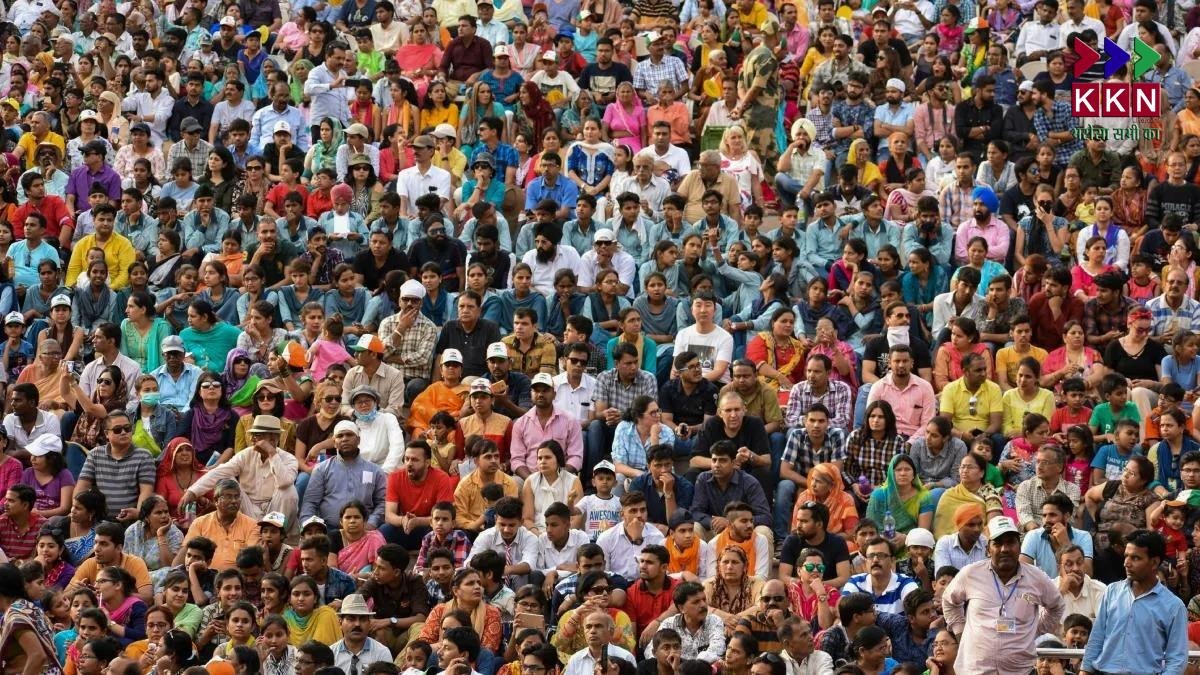
Tamil Nadu Governor RN Ravi has expressed serious concerns over the ongoing demographic changes in parts of India. Speaking to students and faculty at the National Defence University in Gandhinagar, he questioned the lack of national attention on the issue. According to him, unchecked population shifts in regions like Assam, West Bengal and parts of Uttar Pradesh and Bihar could become a serious national threat in the coming decades.
He warned that such changes are similar to a ticking time bomb. Without strategic action, these shifts could lead to internal instability. The Governor asked whether anyone has truly assessed what could happen in the next 50 years in these regions. He suggested that it may eventually lead to fragmentation from within, rather than external aggression.
Demographic Changes Could Lead to Future Divisions, Says Governor
Governor Ravi referred to past incidents in Indian history to support his argument. He recalled the 1947 partition and stated that it occurred due to ideological unrest, not military defeat. According to him, certain groups felt they could not live with others due to ideological differences. That unrest eventually led to the division of the country.
He said that India has endured many external invasions in history. However, the deeper threat, he emphasized, often comes from within. He urged that people must study internal shifts more seriously. According to him, ideological shifts and demographic transformations must be addressed proactively to ensure national unity remains intact.
Assam, Bengal and Purvanchal Witnessing Rapid Demographic Transition
The Governor specifically mentioned Assam, West Bengal and Purvanchal as regions undergoing rapid population transformation. He questioned why the country has ignored these changes over the last three to four decades. Ravi asked whether anyone has evaluated how this demographic trend may affect India in the next half-century.
He warned that these transformations are not merely statistical. They have socio-political consequences. According to him, ignoring such patterns could create major instability, not just regionally but nationally. He termed the shift as a potential “time bomb” that could detonate through growing social unrest.
Military Power Alone Not Enough to Handle Internal Conflicts
Governor Ravi, a former IPS officer, argued that military strength is not sufficient to contain internal disturbances. He cited the example of the Soviet Union, which collapsed in 1991. Despite having unmatched military power, it could not withstand internal fragmentation.
He emphasized the importance of social cohesion, ideological unity and demographic balance. According to him, national defense is not limited to borders and missiles. True defense includes the ability to sustain peace within. He reiterated the need for early action, strategic studies and long-term policy to address the internal demographic imbalance.
Language Should Not Become a Cause for Division
Touching on the ongoing language disputes in states like Maharashtra, Karnataka and Tamil Nadu, the Governor warned against linguistic polarization. He said that India’s culture does not promote hatred in the name of language. Language has been used for political gain in the past, but it should never become a tool for division.
Ravi pointed out that after independence, India saw internal tensions over language. Some groups pushed for reorganization of states based on linguistic identity. He said such ideas were promoted as linguistic nationalism, which led to division rather than unity. According to him, this was a wrong turn for the country.
He mentioned that the central government has consistently stated that all Indian languages are equally respected. He quoted Union Home Minister Amit Shah, who has reiterated that every Indian language is a national language. Prime Minister Narendra Modi has also emphasized that all languages should be treated with equal dignity.
Population and Identity-Based Politics Can Threaten National Integrity
Governor Ravi warned that when population shifts combine with identity politics, the results can be disastrous. He said that the government must recognize sensitive zones where these changes are happening rapidly. The answer lies not in suppression but in proactive governance, social integration and open dialogue.
He said that no nation can afford to ignore internal warnings. A demographic imbalance could act like an undercurrent that slowly eats away at national stability. If these trends are left unaddressed, they could create conditions for future unrest.
Central Leadership Has Repeatedly Called for Unity Through Diversity
Ravi clarified that the Government of India respects all regional and linguistic identities. The idea of unity in diversity remains central to the Indian constitution and ethos. He urged citizens to rise above regional differences and embrace a collective Indian identity.
He added that promoting one language at the cost of others is not acceptable in a multilingual society. The country has never imposed a single language on its people and should continue with that inclusive approach.
Call for Strategic Research and Policy Intervention
The Governor advocated for serious academic study and national discourse on changing population patterns. He said that national institutions must undertake demographic mapping in high-risk areas. The findings must be used to build long-term policy that strengthens social harmony and preserves national integrity.
He also emphasized that students and scholars at institutions like the National Defence University have a duty to engage in such issues. According to him, the country’s future depends not just on military strength but on how it addresses civil and ideological challenges.
Governor RN Ravi’s remarks have sparked a renewed debate on internal challenges facing India today. His concerns about population changes in Assam, Bengal and Purvanchal have highlighted the urgent need for strategic planning. While external security remains a top priority, his speech reminds the nation that internal cohesion is equally critical.
The Governor’s remarks are not without controversy, but they have brought attention to issues that often go unnoticed. With increasing social and political shifts in several regions, his message is clear: long-term peace and national unity require awareness, action and inclusive governance.
India must continue to respect its diversity while remaining vigilant against forces—internal or external—that may threaten its unity. The conversation started by Governor Ravi may be uncomfortable for some, but it underlines the need to engage with ground realities that could shape India’s next 50 years.


